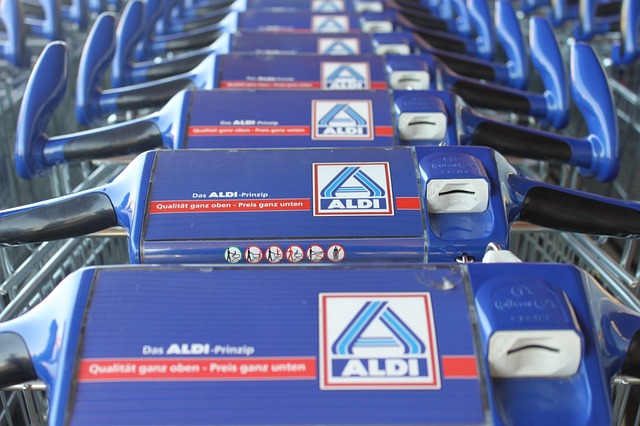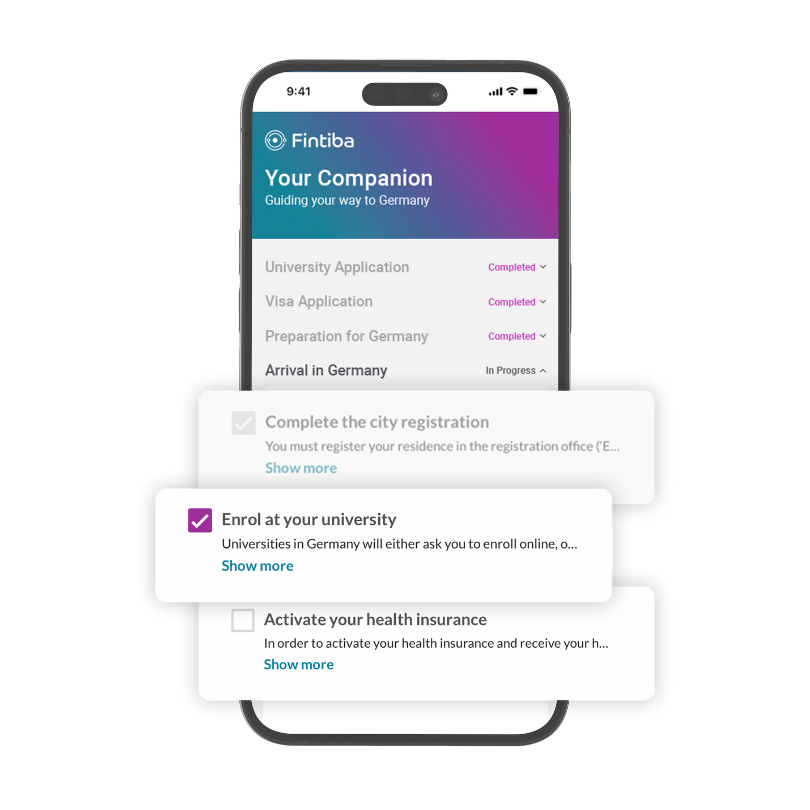Supermarkets in Germany offer a diverse range of products to cater to everyone. Are you just beginning your exciting journey in Germany? This comprehensive guide will tell you all you need to know about grocery shopping in Germany. This way, you can navigate this aspect of daily life with ease.
Common types of supermarkets in Germany
Going grocery shopping in a new country can be both exciting and overwhelming. Understanding the various types of supermarkets in Germany can make your first grocery shopping experience much easier. From budget-friendly supermarkets to huge, full-service supermarkets and international stores, there is something for everyone.
Discount supermarkets
Discount supermarkets in Germany are a favourite for both Germans and internationals. This is because they focus on affordability without compromising on quality. They are some of the cheapest supermarkets in Germany.
Discount supermarkets have a good selection of goods in stock. Additionally, they have a house brand, which is typically better priced than other brands.
Shoppers can find all essential items here, for example:
- Daily grocery items like fresh fruits and vegetables, canned goods, rice, pasta, and bread, among others
- Beverages such as juice, sodas, water, and alcoholic drinks.
- Household items e.g., detergents, soaps, sponges, etc.
In addition, most discounters have special offers each week on items like electronics, seasonal products, clothes, and home appliances.
Popular discount supermarkets you may find near you include:
- Aldi Süd or Aldi Nord
- Lidl
- Netto
- Penny
Full-service supermarkets
Bigger supermarkets have a much wider range of products to choose from. However, they are often more expensive than discount supermarkets. Aside from all the essential groceries, you can also find electronics and kitchenware.
These full-service supermarkets typically also have a butchery and bakery in store. Some supermarkets may even have special aisles for international food products.
Like discounters, big supermarket chains also have their own brand of items, which they usually sell at a cheaper price.
Popular full-service supermarkets include:
- REWE
- Edeka
- Kaufland
- Real
Organic supermarkets
Bio or organic supermarkets in Germany are popular among individuals who prioritise health, ethical production practices, and sustainability. Here, you can find a variety of organic products, such as:
- Fresh produce
- Dairy products
- Gluten-free bread and pasta
- Plant-based products.
Items in organic supermarkets tend to be more expensive than in regular supermarkets. The most popular organic supermarkets include:
- denn’s Biomarkt
- Alnatura
Overview: Popular supermarkets in Germany
| Name | Type of supermarket | Budget |
|---|---|---|
| Aldi | Discount | Low |
| Lidl | Discount | Low |
| Netto | Discount | Low |
| Penny | Discount | Low |
| REWE | Full-service | Medium |
| Edeka | Full-service | Medium |
| Kaufland | Full-service | Medium |
| Real | Full-service | Medium |
| Denn's Biomarkt | Organic | High |
| Alnatura | Organic | High |
Other types of stores in Germany
Drugstores
Drugstores in Germany provide a mix of well-known international brands and more affordable house brands. Items you will find in such stores include:
- Skin- and hair care products
- Personal hygiene products
- Cosmetics and make-up
- Baby products
- Cleaning and laundry products
The biggest and most popular drugstores found in every city in Germany are DM and Rossmann.
Convenience stores
Convenience stores are better known as Kiosks, Spätkauf, or Späti in Germany. They are often found in the city centre or near public transportation hubs. Kiosks typically offer:
- Beverages (alcoholic and non-alcoholic)
- Snacks
- Cigarettes
- Newspapers
- Basic groceries
Many gas stations in Germany also have a convenience store attached. These stores offer a limited range of products, from snacks and beverages to basic groceries and toiletries. Some even have a small bakery where you can get pastries and coffee.
Often, convenience stores tend to be slightly more expensive than traditional supermarkets.
International supermarkets in Germany
International stores in Germany cater to the diverse population in the country. They are popular among many international students and expats.
These supermarkets have a variety of products from different countries. You may also find a wider selection of spices, fresh produce, exotic fruits, and vegetables here.
In many cities, you can find supermarkets primarily focused on selling products from Turkey, the Middle East, Asia, or Africa. Turkish supermarkets, for example, are commonly known for having fresh meat at an affordable price.
What you need to know about German supermarkets
Opening times
In Germany, supermarket opening times may vary depending on the supermarket chain, the location, and specific regulations. However, there are some general trends that can give you an idea of what to expect.
On weekdays, supermarkets in Germany typically open from 07:00 a.m. to 08:00 p.m. In bigger cities, you may be able to shop for groceries until 09:00 p.m. or even 10:00 p.m.
On Saturdays, some German grocery stores may close an hour or two earlier than on weekdays.
On Sundays, most supermarkets and stores in Germany remain closed because of legal restrictions. However, you may find convenience stores in train stations and gas stations that are open on Sundays. They offer a limited range of goods, often at a higher price.
Pfand
The bottle deposit (Pfand) system in Germany may be something new to many internationals. This system is meant to encourage recycling and reduce pollution.
When you buy a beverage in a bottle or a can, you may often find the recycling symbol on the label. This means that the bottle or can is eligible for Pfand. You can deposit the empty bottle in special vending machines often found in supermarkets or beverage stores (Getränkemarkt).
For each bottle you return, you receive 15–25 cents, depending on the type of bottle. You can then print out a receipt with the total amount after you have finished depositing the bottles.
The amount will be deducted from your total amount when you checkout. You can also hand in the receipt without having to do any more shopping and receive the coins instead.
Bring a grocery bag!
Bringing your own bag while grocery shopping in Germany will make your entire experience easier. German stores charge for plastic and fabric bags alike. It is always recommended to have a reusable bag with you.
Bring a coin for the shopping cart!
In many supermarkets, you will need a coin to release a shopping cart. The coin can be €0.50, €1, or €2. When you return the cart, you get your coin back. This system encourages customers to return carts to designated areas to avoid unorganised parking lots.

Checking out
In Germany, it is customary for customers to bag their own groceries. After the cashier scans your items, they will typically place them at the end of the conveyor belt. You need to be fast while packing your groceries as the cashier will also be very fast with scanning your items.
German supermarkets tend to accept both cash and card payments. However, smaller stores might only accept cash, so make sure you have some with you.
Grocery delivery in Germany
Grocery delivery services are gaining popularity in Germany, especially in big cities. These services are a convenient and time-saving alternative to traditional grocery shopping.
On these online platforms, you can browse through a wide range of products and add them to a virtual cart. After this, you can proceed with the checkout process.
Customers can often choose from a variety of delivery windows. This allows you to select a time that suits your schedule. Some services even offer same-day delivery options.
Popular grocery delivery services in Germany include:
You can also have meal kits delivered to your doorstep. Meal kits include pre-portioned, fresh ingredients with a detailed recipe card. These are great for avoiding food waste or if you dislike meal planning.
Meal-kit providers usually offer a wide selection of recipes that cater to various dietary preferences. The most popular meal-kit provider is HelloFresh.
Summary
From discount supermarkets to convenience stores to international supermarkets, the grocery shopping landscape in Germany is a multifaceted experience. Supermarkets in Germany cater to a wide range of preferences and lifestyles.
Last update: February 13, 2024
